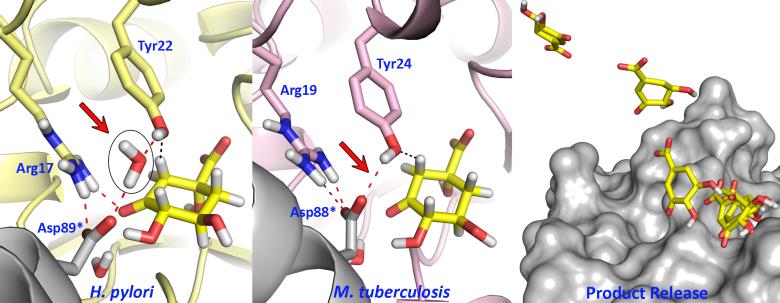The work has been highlighted as Spotlight by the journal Biochemical Journal, would enable the development of new antibiotics
The research groups of Prof. González-Bello from CIQUS (University of Santiago de Compostela) and Prof. Federico Gago from University of Alcalá have identified a hitherto unknown aminoacid residue that triggers a reaction catalyzed by an enzyme that is essential in bacteria, which is responsible for causing tuberculosis (Mycobacterium tuberculosis) or stomach cancer (Helicobacter pylori).
 After a number of biochemical and computational studies, researchers have revealed all the details of how this residue triggers the reaction catalyzed by the enzyme type II dehydroquinase. Since this enzyme is not present in humans, this knowledge is invaluable for the rational development of new antibiotics to overcome these infectious diseases, which pose a high human and economic cost to our society.
After a number of biochemical and computational studies, researchers have revealed all the details of how this residue triggers the reaction catalyzed by the enzyme type II dehydroquinase. Since this enzyme is not present in humans, this knowledge is invaluable for the rational development of new antibiotics to overcome these infectious diseases, which pose a high human and economic cost to our society.
The Professor González-Bello´s research group has employed this strategy in recent years, achieving to patent some potent compounds able to starve the bacteria, by blocking their viability processes.
Research paper: Mechanistic Insight into the Reaction Catalysed by Bacterial Type II Dehydroquinase"
Journal: Biochemical Journal (Spotlight)


